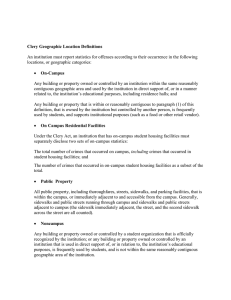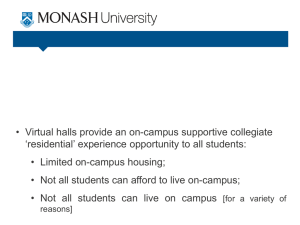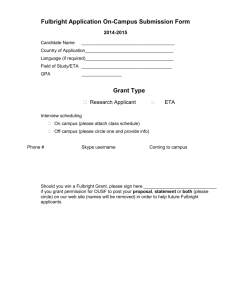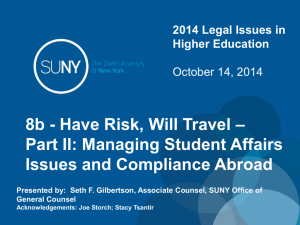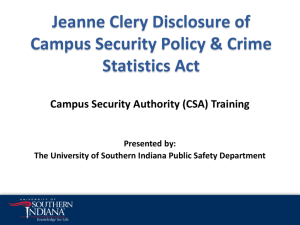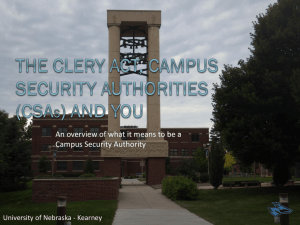Clery Geographic Location Definitions
advertisement
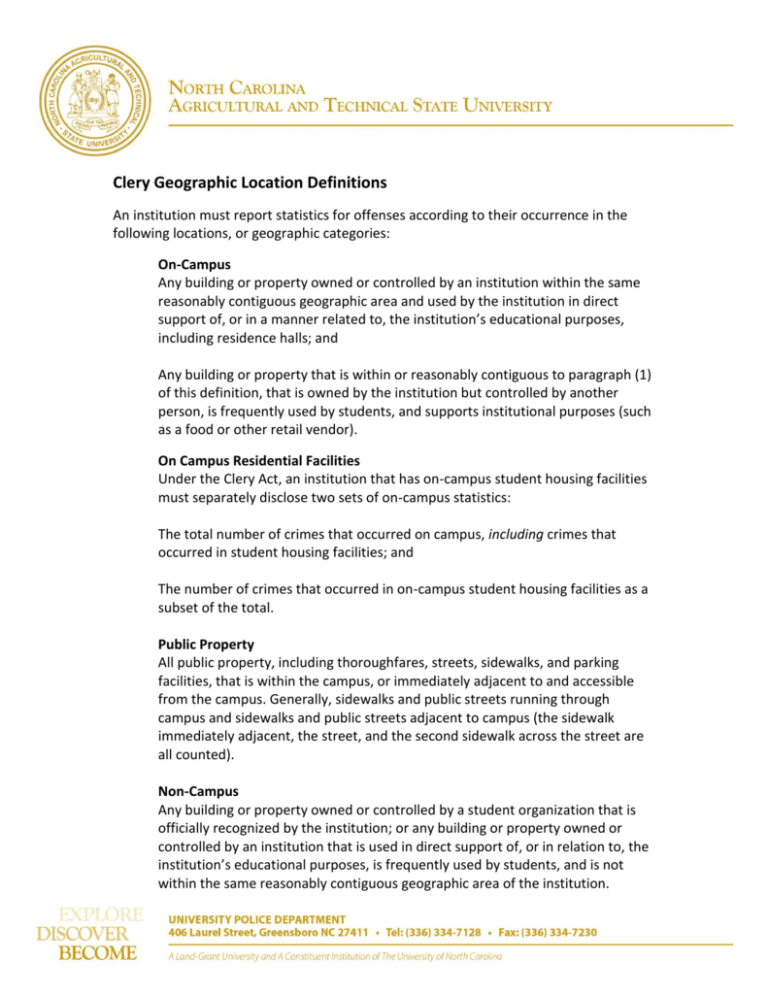
Clery Geographic Location Definitions An institution must report statistics for offenses according to their occurrence in the following locations, or geographic categories: On-Campus Any building or property owned or controlled by an institution within the same reasonably contiguous geographic area and used by the institution in direct support of, or in a manner related to, the institution’s educational purposes, including residence halls; and Any building or property that is within or reasonably contiguous to paragraph (1) of this definition, that is owned by the institution but controlled by another person, is frequently used by students, and supports institutional purposes (such as a food or other retail vendor). On Campus Residential Facilities Under the Clery Act, an institution that has on-campus student housing facilities must separately disclose two sets of on-campus statistics: The total number of crimes that occurred on campus, including crimes that occurred in student housing facilities; and The number of crimes that occurred in on-campus student housing facilities as a subset of the total. Public Property All public property, including thoroughfares, streets, sidewalks, and parking facilities, that is within the campus, or immediately adjacent to and accessible from the campus. Generally, sidewalks and public streets running through campus and sidewalks and public streets adjacent to campus (the sidewalk immediately adjacent, the street, and the second sidewalk across the street are all counted). Non-Campus Any building or property owned or controlled by a student organization that is officially recognized by the institution; or any building or property owned or controlled by an institution that is used in direct support of, or in relation to, the institution’s educational purposes, is frequently used by students, and is not within the same reasonably contiguous geographic area of the institution.
